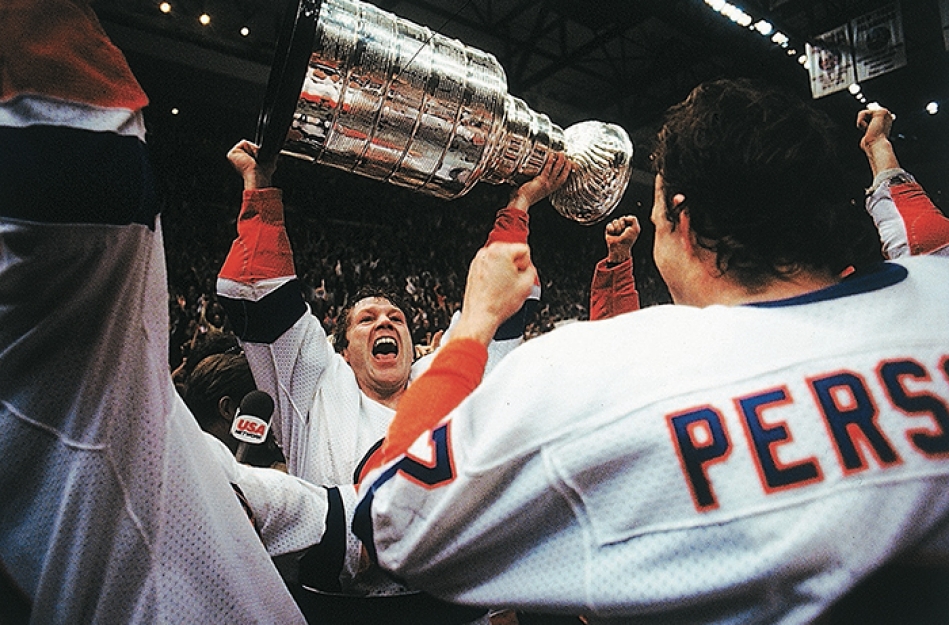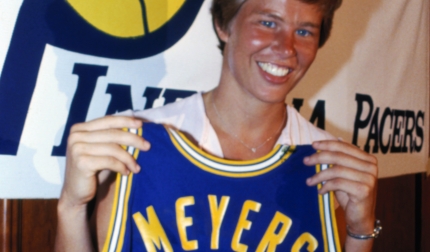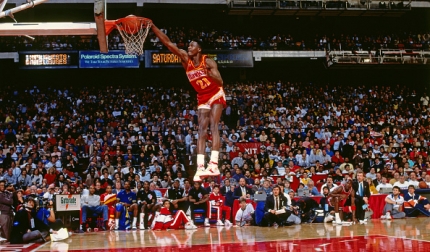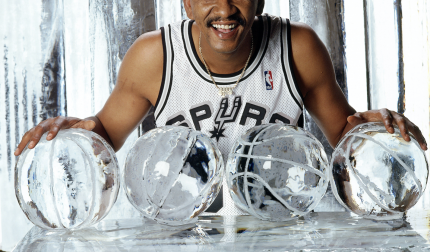The New York Islanders’ dynasty of four straight Stanley Cups is more than 30 years old. Does it still seem like yesterday?
Is it unbelievable. And yes, there are some experiences I remember that are as fresh as yesterday. The joy of winning four Stanley Cups was such as accomplishment for our team. And particularly in our case, to win four straight, I think we can safely say that most likely will never be repeated. Not to mention our winning 19 consecutive playoff series. And we lost in the Finals in the fifth year – it’s not like we dropped off the map after the fourth Cup. It's really an accomplishment. Wherever we go, people recognize it as an incredible feat—like the '72 Dolphins, like the Pittsburgh Steelers. There are very few sports franchises that have accomplished things that set them apart like we did.
Being the first overall pick in 1973, was the pressure immense for you as you were joining an expansion franchise?
I came in and wanted to be successful. When I left junior, my goal was to be drafted in the first round. You always set goals. One of mine was scoring 20 goals in a season. That was a level I wanted to be at and I did it nine times. But I had a lot more support than people think. First of all, my brother was there. Jean was already on the team, and we were roommates. Obviously everyone wanted the franchise to succeed. Getting me was one piece of what made us successful. The toughness element was there with Bobby Nystrom and Garry Howatt. After I was drafted, Clark Gillies came in, then Mike Bossy and Bryan Trottier. They were all terrific players and even better when they played together. The evolution of the team had much to do with the scouting and management - getting the right players to fill the right holes. I felt pressure but I understood that's the way it was. I think I welcomed it and it worked out well. I ended up winning the Calder Trophy.
There were 16 members of all four championship teams. Is that a particular source of pride?
It really is a tremendous attribute to the management of the team. I don't know of any other player who had the same coach for the first 13 years of his career as I had with Al Arbour. At the time, you're like teenager trying to deal with his Dad always asking, "Why is he doing this?" In retrospect, you take a look at what Al was able to do and what Bill Torrey did through trades and the draft. It's really quite commendable when you think about how this team evolved when Al got there in 1973 right through the Stanley Cup years.
Did the Islanders tough playoff losses before winning the Cup help the team grow?
For sure. Every playoffs is different as the LA Kings have shown us. Two years ago, they won the first three each round. This year, they won in overtime, on the road and in Game 7s. When you become a really good team—even a dynastic one like we were—a lot of those playoff series we had to come back and we got through by the skin of our teeth. Good teams do that as the Kings did this year. In our particular case, losing to the Toronto Maple Leafs in 1978 showed we needed to be tougher. They took it to us physically and we didn't respond correctly. Losing to the Rangers in 1979, we needed more structure in our game. There’s no question that you learn more from your losses than you do from your wins.
Your teams never played a Game Seven during the Cup run. There was only one elimination contest—Game Five in the 1982 first round against Pittsburgh. How do you explain that?
We were a very strong character team. In trying to explain that, after winning the Stanley Cup, October and November of the following hockey season was just as important to Al Arbour as the month of March. With the Islanders there was no such thing as we'll start building up in February and March for the playoffs. Al never felt you could take your foot off the gas. I guess the thing that most epitomized that was in ‘83 when we won four games in a row against the Oilers in the Finals. We couldn't take our foot off the gas. We treated the Oilers the way we treated every other series. If you give them any kind of a life, they will grab on and take hold of the series, which they did the following year. That explains why every playoff round we went into, we didn't want to leave it to chance. You have to get it done. Let's not play overtime or Game 7s.”
When the Kings beat the Rangers this past June, it was the first time a home team won the Stanley Cup in overtime since the Islanders did it in 1980.
It is wild. I really can't believe it hadn't been done since Bobby Nystrom did it on May 24, 1980, that hot Saturday afternoon at Nassau Coliseum. I couldn't figure out how Nystrom had energy in overtime. Then I realized after looking at the scoresheet that he had a 10-minute misconduct and two fights during the game!
With the move to Brooklyn in 2015, do you fear some of Islander history will be lost?
I am sad it didn't go the way of Boston or Philadelphia, where they built a beautiful new arena next door. Certainly there is plenty of room on Long Island with a great location. I'm going to feel sad. The Islanders will bring the banners to the new arena, I'm hoping. But in the end, we're going to be a part of history. The team won't be there anymore.
In 1993-94, when Mike Keenan was coaching the Rangers, is it true he asked you to come out of retirement and play for the team that would eventually win the Stanley Cup?
Yes! Mike asked me in late October that season if I would be interested in coming back. He felt he needed a guy like myself to maybe play the power play and be a veteran presence. It was quite flattering. But in the end, I had been retired for almost six years. I put on the rollerblades in Florida and went for a hard skate. Pretty soon I realized that coming back and playing NHL hockey was not going to happen. I had too much respect for the game to think that after six years I could step back into an NHL dressing room. And with a very good team. The Rangers with Brian Leetch and Mark Messier seemed to be pretty well established. Also, at that time number 5 with the Rangers was available. With all that had gone by over the years, putting on the Ranger jersey could have gone either way for me. It was the Rangers and we had our battles. But what if I made a bad pass and they didn't win the Cup? I would now be living somewhere in Siberia.
The famous (Potvin sucks) chant at Madison Square Garden continues to this day. Do you laugh about it now?
I've been in there many times broadcasting with the visiting team. And I still hear them chanting. At least now they are chanting it with a smile. It is quite incredible, a 35-year run. I suppose it's flattering. When I played, it really did serve as great motivation for me - though it was much more threatening at the time.
The play that caused it was a check on Rangers star Ulf Nilsson? What’s your recollection of the play?
It was body contact. I was always on the ice against Anders Hedberg and Nilsson because we always tried to match up against other team's top line. I remember Ulfie skating down on me. I was playing right defense, not my normal position. He went around me and went to the deep corner. And he gave me an opportunity to make my turn and then go in and take him out. Except his skate got caught in a rut just as I came in to hit him right next to the boards. When he spun and I made contact, he made contact with the boards and his knee just never really followed. But he and I became friends and Ulf has been wonderful. He has repeatedly said it was a clean check. What really drove the chant was that the Rangers lost to Montreal in the ’79 Finals. And then, we went on to win four straight and beat the Rangers four out of five years in the playoffs. I think that was really the crux of the reason why the chant survived and got louder, because I was the guy they could point to and say 'we would have won with Ulf Nilsson.'”
You’ve said the fans at MSG are really chanting “Potvin’s cups!”
Yes. (laughing). That was my way of having fun with it. Either way, I know they've never forgotten me.”
The tragedy of Marty St. Louis losing his mother this spring, you went through something similar, losing your dad during the 1984 playoffs. Did you empathize with Marty?
Certainly I felt for him, and I understood his motivation. It's a very, very hard thing to play through. Because in the end, there are not many athletes who don't credit their parents with having the most important hand in getting them to the pros - the support they got throughout their rise to the professional ranks. I certainly felt for him and was happy to see the success he had in the playoffs. I hung on to play another four years after my father died in '84, but the game was never the same. It wasn't as much fun for me anymore. Trying to play the game when you know that your biggest fan is gone, it takes time. It took me quite a while to get over it. I wish I could have gotten over it in those '84 playoffs a little sooner. Maybe I would have played better and maybe helped us win the fifth Cup. But all of those things were secondary to the family issue. Losing my Dad was very tough. Life is not supposed to be easy. Everyone comes to understand that.





